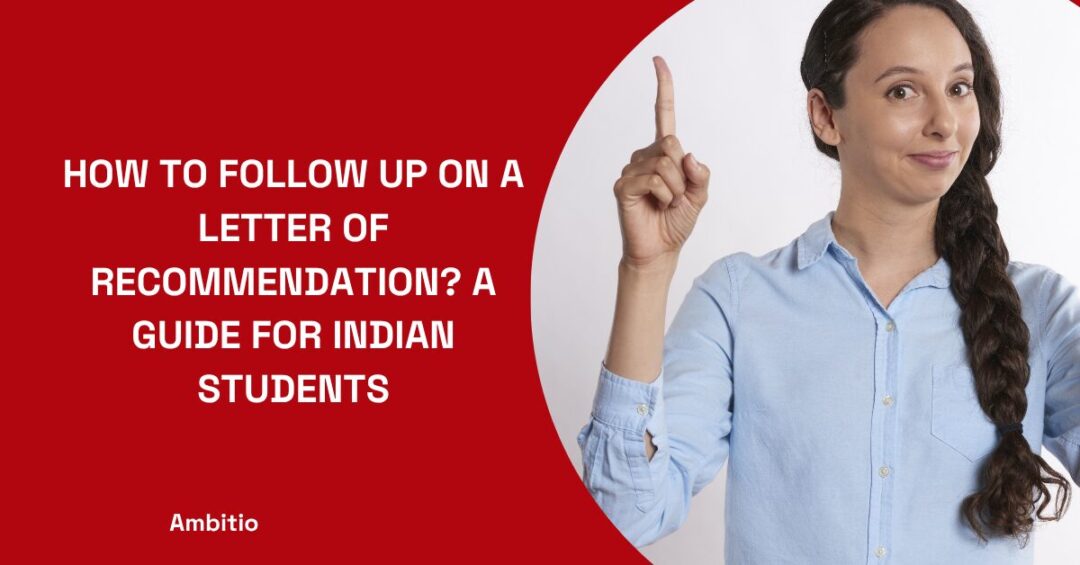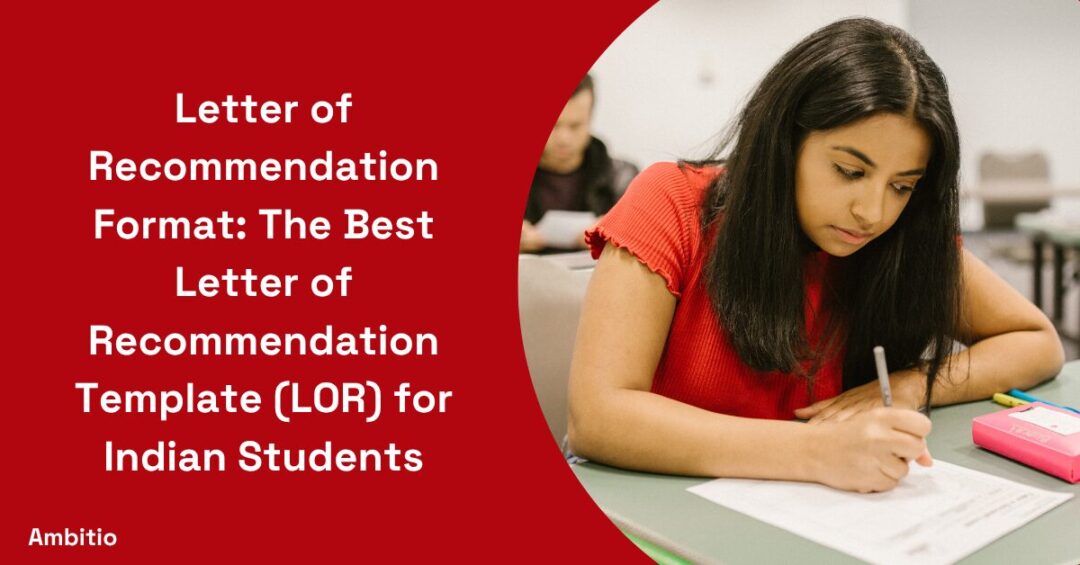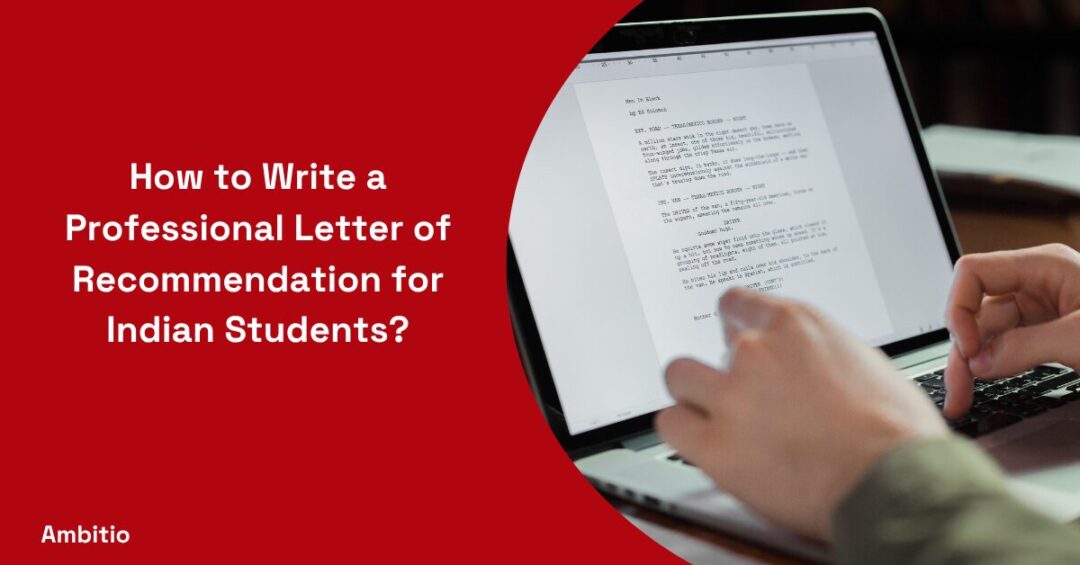8 July 2025
6 minutes read
How To Write A Letter Of Recommendation For Indian Student: Template & Sample
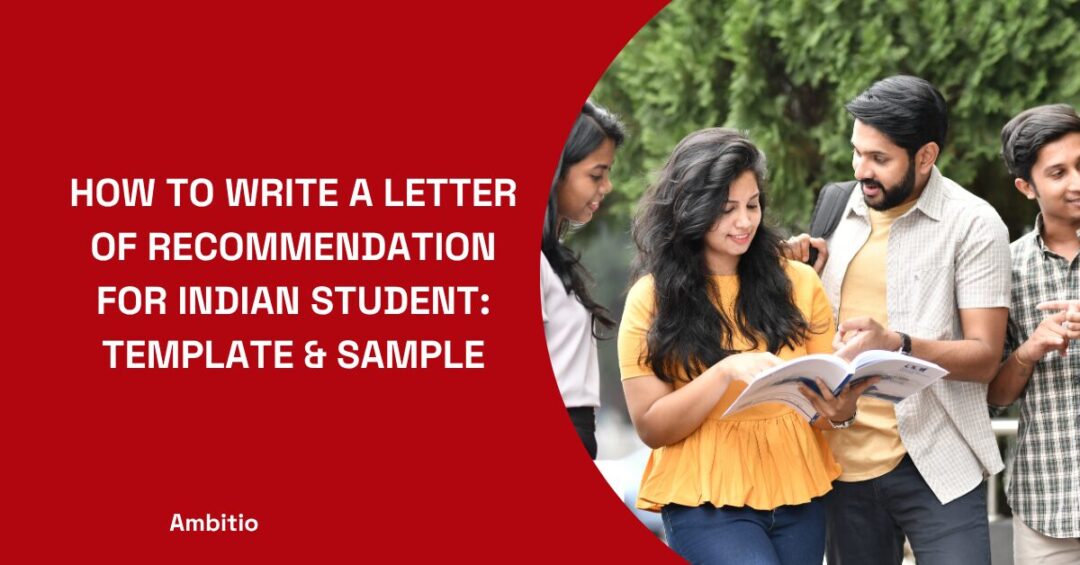
Key Takeaways
- Write a letter of recommendation for student with specific examples that show their strengths, not just generic praise
- Mention your role and how long you’ve known the student to build credibility from the start
- Align the student’s qualities with the course or program to show why they’re a good fit
Most recommendation letters read like a bad Tinder bio — full of generic praise and zero specific examples.
You’ve been asked to write a letter of recommendation for a student, maybe for admission, a scholarship, or an internship. Sounds simple—until you sit down to write a well-written, one page business letter that actually highlights their academic strength, leadership ability, and work ethic. The truth? Most people either ramble or rely on outdated templates that don’t illustrate the student’s real achievement, traits, or personal qualities.
To recommend a good student, you need to tailor your message, stay concise, and evaluate them with concrete examples—an anecdote from class, their participation, or how you saw their quality evolve over time.
What Is A Recommendation Letter?
A recommendation letter is a personalized endorsement written by someone who has closely worked with or guided the applicant—typically a mentor, teacher, professor, or counselor. It highlights the applicant’s strengths, achievements, skills, and personal qualities through direct observations and experiences, helping decision-makers understand their potential beyond grades or resumes.
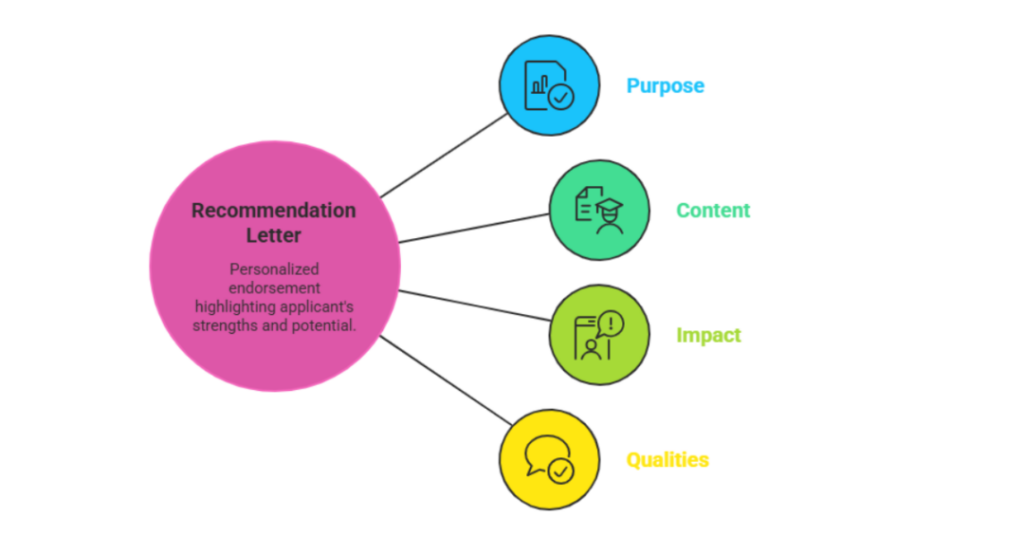
Whether it’s for college admission, a scholarship, or an internship, this letter serves as a credibility tool. It paints a fuller picture of the applicant by backing claims with real examples—often tipping the scales in competitive selection processes. A strong recommendation isn’t just kind; it’s clear, specific, and meaningful.
5 Elements To Write A Letter Of Recommendation For Students To Get Admission
Let’s be honest—most recommendation letters for students sound like they were written during a coffee break, by a teacher trying to remember if ‘Riya’ was in their 2022 or 2023 class.
And that’s exactly why most of them end up in the pile of “meh.” In a competitive college application process, a vague and lukewarm letter can actually hurt more than help. If you’re writing letters for students who truly deserve that next step—be it a top university, a scholarship, or an honors program—then your job is to write with intention, substance, and authenticity. Here’s what makes a well-written letter stand out (and actually conclude with a strong endorsement instead of a lazy sign-off).
1. Set the Stage With Clarity and Context
Start strong. Mention your full name, role, and number of months you’ve worked with the student. Establish your authority. Are you a highly experienced teacher? A mentor in computer programming? Be clear. This opening frames the rest of the letter and gives the recipient a reason to care about what you’re about to say.
2. Highlight the Student’s Strengths With Precision
Don’t just say they’re “smart” or “passionate.” Provide specific examples that highlight the student’s strengths—in both academic performance and extracurricular activities. Maybe they took the initiative to start a robotics club or stayed late every day to collaborate on a group project. This is your moment to provide insight into their abilities and potential.
3. Align Qualities With the Application
Generic praise won’t cut it. You need to show how the student is a good fit for the program they’re applying to. Talk about the student’s academic interests, suitability, and qualification for the institution. Did their curiosity in biology lead to independent research? Did they show willingness to push past comfort zones in group discussions? This is where their calibre shines.
4. Mention Personal Traits That Make Them Stand Out
Go beyond grades. Talk about the student’s qualities—hardworking, sincere, thoughtful, respectful, curious. Their ability to collaborate, their leadership, or even their resilience. Admissions teams already have their GPA—they want to know what kind of human they’re admitting. This part adds soul to the letter.
5. Conclude With a Strong Endorsement and Your Contact
The way you conclude matters. Don’t fizzle out. Conclude with a strong endorsement that confidently states why this candidate deserves to be part of the institution. Reaffirm their accomplishment and suitability, and always end with your endorsement and your contact information in case the recipient wants to follow up. That last line can seal the deal.
What Other Documents Does It Take In A College Application?
Well, an LOR is important—but don’t bet your entire college future on just one glowing review.
A well-written letter of recommendation adds weight to your college application, sure—but it’s just one piece of the puzzle. Universities abroad are looking for a full picture: your academic performance, test scores, writing ability, and personal background. So if you’re only banking on that one strong endorsement, it’s time for a reality check.
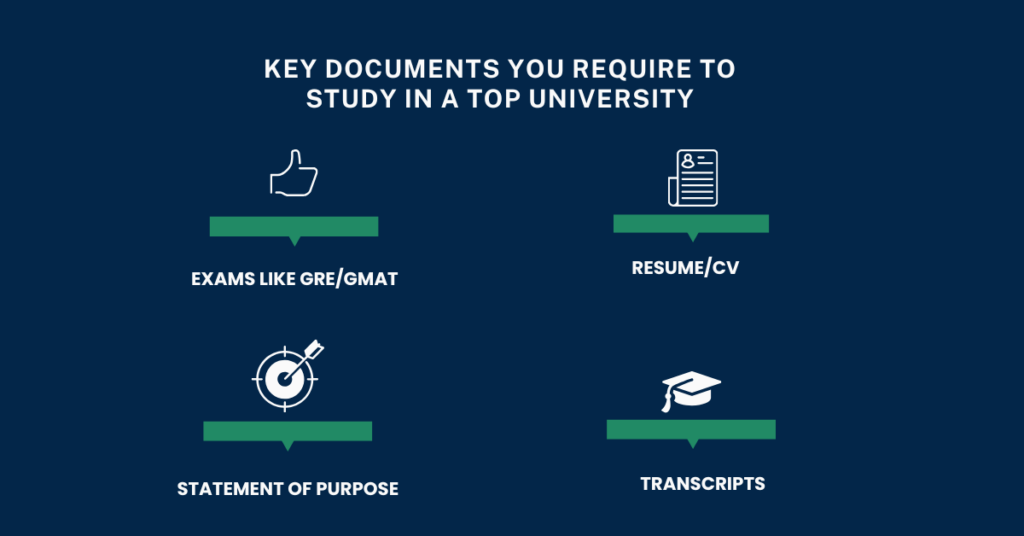
Here’s a quick breakdown of the documents and exams you’ll typically need for a complete college application:
| Category | Document / Test | Purpose |
|---|---|---|
| Academic Records | Transcripts | Reflects your academic performance across high school or previous studies |
| Mark Sheets / Report Cards | Additional breakdown of subject-wise performance | |
| Recommendation | Letter of Recommendation (LOR) | Endorsement from teachers or mentors highlighting your strengths |
| Personal Statement | Statement of Purpose (SOP) | Explains your academic interests, goals, and why you’re a good fit |
| Personal Essay | Often more creative/personal, required by some colleges | |
| Standardized Tests | GRE (Graduate) / GMAT (Business) | Tests logical, analytical, and verbal reasoning for graduate programs |
| SAT / ACT (Undergraduate) | Tests math, reading, and writing skills | |
| English Proficiency | TOEFL / IELTS / Duolingo / PTE | Proves your English proficiency for non-native speakers |
| Resume / CV | Academic/Professional Resume | Summarizes achievements, extracurricular activities, and work experience |
| Passport/ID | Passport Copy / ID Proof | For identification and visa processing |
| Portfolio | Design, Architecture, or Art Programs | Showcases your creative or professional work (if required) |
| Financial Docs | Proof of Funds / Bank Statements | Shows ability to afford tuition/living costs |
| Scholarship Application (if any) | Separate forms and essays, if you’re applying for scholarships |
A Strong Recommendation Letter Sample That Always Work
Let’s get one thing straight—your grades, scores, and college application essays may get you noticed. But a strong recommendation letter? That’s what convinces the admissions committee you’re the one worth betting on.
Think of it this way: when a highly experienced mentor, teacher, or counselor takes the time to highlight the student’s strengths, academic interests, and qualification with specific and concrete examples, it adds trust to everything else you’ve claimed. Especially for competitive programs like an MS in Computer Science, where academic performance, research ability, and problem-solving calibre are non-negotiable
Below is a letter of recommendation sample:
Prof. Arvind S. Mehta
Department of Computer Science
Indian Institute of Technology (IIT) Delhi
Email: [email protected]
Phone: +91-11-2659-XXXX
Date: August 20, 2025
To the Admissions Committee,
It is with great enthusiasm that I endorse Mr. Rohan Verma for admission into your Master’s program in Computer Science. I have known Rohan for over three semesters as his professor for Data Structures, Algorithm Design, and as a project mentor for his final-year research in Machine Learning. I can confidently state that he is one of the most academically driven and technically sharp students I’ve encountered in the past five years.
Rohan consistently ranked in the top 5% of a highly competitive class of over 150 students. What separates him is not just his academic performance but his willingness to dive deep into complex topics, ask the right questions, and collaborate intelligently with peers. During his Machine Learning research project, he independently designed a sentiment analysis engine that improved existing benchmarks by 12%, a result that impressed our entire research group.
But beyond technical competence, Rohan is sincere, hardworking, and remarkably organized. He took the initiative to tutor underperforming juniors and also co-founded a campus coding club that has grown to 200+ active members. His ability to balance extracurricular activities while maintaining academic excellence speaks volumes about his discipline and leadership.
What makes Rohan a good fit for your graduate program is not just his academic interests in Artificial Intelligence and Systems, but his calibre to turn theory into scalable, real-world applications. His student’s qualities—clarity in communication, relentless curiosity, and ability to perform under pressure—will be valuable assets to your department.
To conclude with a strong endorsement: Rohan Verma is a candidate of exceptional abilities and potential, and I highly recommend him for your MS in Computer Science program. Should you require further information, please feel free to reach out to me via email or phone—I would be happy to provide insight into his accomplishments and suitability for your university.
Sincerely,
Prof. Arvind S. Mehta
Department of Computer Science
IIT Delhi
Conclusion
Not every student needs a flashy recommendation letter. But the right student? They deserve one that’s thoughtful, honest, and sharply written. If you’ve worked closely with someone who shows real calibre, take the time to craft a letter that goes beyond generic praise.
Don’t chase perfection. Just provide insight, speak from experience, and keep it real. That’s what makes your words matter—not the format, but the authenticity. At the end of the day, a strong recommendation doesn’t sell a student—it proves them.
Most students settle for boring, copy-paste LORs—but yours won’t. At Ambitio, our experts help you craft sharp, personalized letters of recommendation that actually say something—and make decision-makers pay attention. No templates, no fluff—just real impact, written right. Get your letter of recommendation done with Ambitio Elite.
FAQs
Why should Indian students consider studying abroad?
Studying abroad offers global exposure, quality education, and better career opportunities in many fields
Which countries are popular among Indian students for higher studies?
Top destinations include the USA, UK, Canada, Australia, Ireland, Singapore, and EU countries
How do I choose the right country and university?
Consider education quality, language of instruction, cultural compatibility, post-study work options, university ranking, and course availability
What are the typical entry requirements?
Requirements often include academic transcripts, standardized test scores (IELTS, TOEFL, GRE, GMAT), statement of purpose, and letters of recommendation
Do I need a student visa, and how strict is the process?
Yes, a student visa is mandatory. Visa processes have become stricter, so ensure all documents are complete and accurate
Can I work part-time while studying abroad?
Many countries allow part-time work during studies and full-time during vacations, but rules vary. Check your visa conditions carefully

You can study at top universities worldwide!
Get expert tips and tricks to get into top universities with a free expert session.
Book Your Free 30-Minute Session Now! Book a call now















